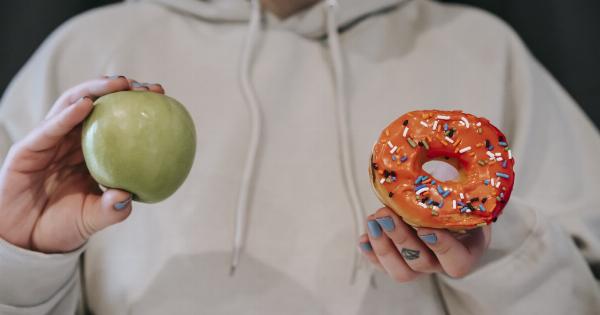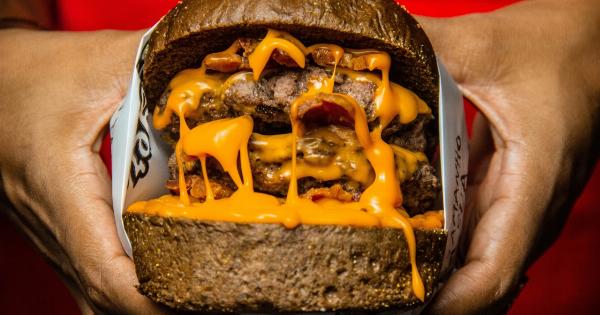When it comes to monitoring our calorie intake, we often focus solely on the food we consume and overlook the beverages that accompany our meals.
However, drinks can contribute a significant amount of calories to our daily diet, and it’s crucial to be mindful of their content. Knowing the calorie content in your drinks can help you make healthier choices and maintain a balanced diet. In this article, we will explore the calorie content of various popular beverages and provide tips on how to make smarter drink choices.
The Impact of Sugary Drinks on Calorie Intake
Sugary drinks, such as sodas, energy drinks, sweetened teas, and fruit juices, are notorious for their high calorie content.
These beverages often contain added sugars, which provide no nutritional value and are linked to various health issues like obesity, diabetes, and tooth decay.
One can of cola, for example, contains around 150 calories, while an energy drink may have up to 200 calories per serving.
A small glass of orange juice can pack around 110 calories, and sweetened iced tea can contain as much as 180 calories in a 12-ounce serving.
It’s important to note that these drinks can easily contribute to exceeding our daily calorie needs.
For instance, if you consume two cans of soda and a glass of orange juice in a day, you are already consuming an extra 410 calories just from beverages.
The Hidden Calories in Alcoholic Drinks
Alcoholic beverages are another significant source of calories that often go underestimated. While moderate alcohol consumption can be included in a healthy diet, it’s essential to be conscious of the calorie content they contribute.
A standard glass of wine typically contains around 120 calories, and a pint of beer can have around 200 calories.
Cocktails and mixed drinks can be particularly deceptive, as they often contain sugary syrups, juices, or sodas in addition to the alcohol content.
A margarita, for example, can have over 300 calories per serving, and a sweetened daiquiri may contain as much as 400 calories.
It’s essential to be mindful of the ingredients used in cocktails and opt for lighter options like spritzers or low-calorie mixers to minimize the calorie impact of your drink.
The Role of Milk and Dairy-Based Drinks
Milk and dairy-based drinks provide valuable nutrients like calcium, protein, and vitamins. However, it’s crucial to consider their calorie content, especially if you’re trying to manage your weight or have specific dietary restrictions.
A cup of whole milk contains around 150 calories, while reduced-fat or skim milk options offer fewer calories. Flavored milk and milkshakes often have added sugars and can easily exceed 200 calories per serving.
Opting for unsweetened or low-calorie alternatives is a good way to enjoy dairy while keeping your calorie intake in check.
Healthier Options for Hydration
Staying hydrated is essential for our overall well-being, but it doesn’t mean we have to rely on high-calorie beverages. The following options offer hydration without the calorie overload:.
– Water: The ultimate zero-calorie drink, water is always the best choice for quenching your thirst.
– Unsweetened Tea: Whether hot or cold, unsweetened tea can be a refreshing and calorie-conscious alternative.
– Sparkling Water: If you’re craving carbonation, opt for flavored sparkling water instead of sugary sodas.
– Infused Water: Adding slices of fruits, vegetables, or herbs to your water can infuse it with flavor without the added calories.
Reading Labels and Making Informed Choices
When shopping for beverages, it’s crucial to read the labels and understand the nutritional information. Look for the serving size and the number of calories per serving.
If a drink has multiple servings per container, multiply the calories by the number of servings you plan to consume.
Keep in mind that some drinks, like coffee or tea, can become high-calorie choices when adding flavorings, sweeteners, creams, or syrups. Pay attention to the extras you add to your drinks and choose lower-calorie alternatives whenever possible.
Remember that portion sizes matter. Be mindful of the size of the glass or cup you’re using and adjust your calorie intake accordingly.
Choosing smaller portions can help you enjoy your favorite drinks while managing your calorie intake more effectively.
Conclusion
Being aware of the calorie content in your drinks is crucial for maintaining a balanced diet and healthy lifestyle.
Sugary drinks, alcoholic beverages, and dairy-based drinks can all contribute a significant number of calories, which, if unchecked, can lead to weight gain and various health problems.
Opting for healthier alternatives like water, unsweetened tea, and infused water can help you stay hydrated without consuming excessive calories.
Reading labels, understanding portion sizes, and making informed choices about the beverages you consume are important steps towards maintaining a healthier and more balanced diet.




























